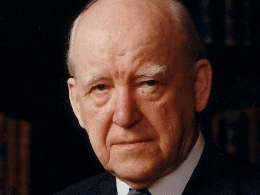In the Old Testament worship was complex, precise and highly regulated by the Word of God. Not only so it was also to be strictly implemented in every detail. One of these aspects was the Holy Anointing Oil. Here’s the relevant passage from Exodus 30: 22-33
The Holy Anointing Oil
22 Moreover the Lord spoke to Moses, saying: 23 “Also take for yourself quality spices—five hundred shekels of liquid myrrh, half as much sweet-smelling cinnamon (two hundred and fifty shekels), two hundred and fifty shekels of sweet-smelling cane, 24 five hundred shekels of cassia, according to the shekel of the sanctuary, and a hin of olive oil. 25 And you shall make from these a holy anointing oil, an ointment compounded according to the art of the perfumer. It shall be a holy anointing oil. 26 With it you shall anoint the tabernacle of meeting and the ark of the Testimony; 27 the table and all its utensils, the lampstand and its utensils, and the altar of incense; 28 the altar of burnt offering with all its utensils, and the laver and its base. 29 You shall consecrate them, that they may be most holy; whatever touches them must be holy. 30 And you shall anoint Aaron and his sons, and consecrate them, that they may minister to Me as priests.
31 “And you shall speak to the children of Israel, saying: ‘This shall be a holy anointing oil to Me throughout your generations. 32 It shall not be poured on man’s flesh; nor shall you make any other like it, according to its composition. It is holy, and it shall be holy to you. 33 Whoever compounds any like it, or whoever puts any of it on an outsider, shall be cut off from his people.’”
And also of the Incense in in Exodus 30:34-38
The Incense
34 And the Lord said to Moses: “Take sweet spices, stacte and onycha and galbanum, and pure frankincense with these sweet spices; there shall be equal amounts of each. 35 You shall make of these an incense, a compound according to the art of the perfumer, salted, pure, and holy. 36 And you shall beat some of it very fine, and put some of it before the Testimony in the tabernacle of meeting where I will meet with you. It shall be most holy to you. 37 But as for the incense which you shall make, you shall not make any for yourselves, according to its composition. It shall be to you holy for the Lord. 38 Whoever makes any like it, to smell it, he shall be cut off from his people.”
Note in verses 32, 33 & 38 the clear prohibition on copying the oil or ‘making anything like it’. Why do you suppose that was? You argue under that particular administration Israel and its worship was to be completely separate from the surrounding Nations. That would be true. But surely there’s a wider application to The Church and this wouldn’t be difficult to show. The Holy Anointing Oil represents the person of the Holy Spirit. Most Christians I think would accept that interpretation. The strictness placed on the presentation makes perfect sense. We find the same kind of strictness when dealing with any aspect foreshadowing the saving work of Christ. Gathering sticks on the Sabbath would be a good example. The overall lesson is that God will be worshipped in the way He prescribes – not how we prescribe it. He will be approached in the way He prescribes. Yes, we only approach a Holy God by way of sacrifice in and through the Lord Jesus Christ. We ‘enter the Holiest by the blood of Jesus, 20 by a new and living way which He consecrated for us, through the veil, that is, His flesh…’ (Hebrews 10: 19 – 20) So does anything go now – as long as it’s done in Jesus’s name. Not at all. I get no sense whatsoever that the Apostle Paul or the other NT writers even suggest we should worship any old way we like.
For example in Hebrews 12:18 – 24
18 For you have not come to the mountain that may be touched and that burned with fire, and to blackness and darkness and tempest, 19 and the sound of a trumpet and the voice of words, so that those who heardit begged that the word should not be spoken to them anymore. 20 (For they could not endure what was commanded: “And if so much as a beast touches the mountain, it shall be stoned or shot with an arrow.”21 And so terrifying was the sight that Moses said, “I am exceedingly afraid and trembling.”)
22 But you have come to Mount Zion and to the city of the living God, the heavenly Jerusalem, to an innumerable company of angels, 23 to the general assembly and church of the firstborn who are registered in heaven, to God the Judge of all, to the spirits of just men made perfect, 24 to Jesus the Mediator of the new covenant, and to the blood of sprinkling that speaks better things than that of Abel.
I fail to see how any sane person could imply from the contrasting covenants above that our worship should be any less solemn given we approach ‘the judge of all’. I see no reason or justification for flippancy, performance or manipulation in our services.
My concern here is to show how any form of manipulation of the senses in particular and therefore of the will is according to my understanding completely wrong. I abhor any appearance of trying to move the emotions for example by performance style reading of the Bible, and especially so if accompanied by music.
We are NOT to manipulate by any means. When we engage in such activity we are seeking to copy the work of the Holy Spirit. Under the Old Covenant copying the Holy Anointing Oil would result in being cut off from the people. I’m not saying people who use manipulation will be cut-off from the Church or lose their salvation but we should note the seriousness of engaging in manipulation. As the Apostle Paul in
2 Corinthians 2:17 For we are not, as so many, peddling the word of God; but as of sincerity, but as from God, we speak in the sight of God in Christ.
And in 2 Corinthians 4:2 But we have renounced the hidden things of shame, not walking in craftiness nor handling the word of God deceitfully, but by manifestation of the truth commending ourselves to every man’s conscience in the sight of God.
Manipulation or performance in evangelism or worship is deceit. We deceive ourselves, the worshippers, the evangelised and are offering to God ‘Strange Fire’. We should be plain in our speech. Paul again in
2 Corinthians 5:11 ‘Knowing, therefore, the terror of the Lord, we persuade men;’
No amount of performance or manipulation will raise the spiritually dead and neither will it cause the Spirit of God to move in our Worship services or Revive the Church. These activities solely belong to The Holy Spirit and to Him alone. If the Spirit of God is not manifesting himself in our services we must resist the temptation to ‘make up’ the difference as it were by doing what was forbidden in the Old Testament and seek to copy His peculiar presence.
It saddens and concerns me that Christians are now almost defaulting to the position where we are adding to the Gospel. The Gospel IS the power of God unto salvation to everyone that believes. We can’t add anything and we don’t need to either. Praise God He does the saving!
I will come back with more posts on worship.
Like this:
Like Loading...
 We live in a fallen world and it can be a terrible blow to receive difficult medical news. Christians don’t get a free pass on suffering. But these words may help the one trusting in Christ.
We live in a fallen world and it can be a terrible blow to receive difficult medical news. Christians don’t get a free pass on suffering. But these words may help the one trusting in Christ.


